
25 resolutions Google should make for 2012 [Galaxy Nexus contest winner]
Finally, after a two-day delay, we have a winner for a shiny, new Galaxy Nexus smartphone. We asked you to offer 2012 New Year's resolutions for Google -- and you did, and some too late to qualify (you missed the deadline, sorry). Among the many on-time submissions, we chose 25 resolutions that Google should consider for the year ahead.
The resolutions aren't as broad as we expected and perhaps the prize is reason. More of you offered suggestions about Android than anything else. In the list below, some submitters appear more than one time, but they were only considered once in the prize drawing. We randomly chose from among all submitters meeting the deadline. In the interest of time -- and preparation for next week's Consumer Electronics Show -- we didn't check to see if all submitters met the other qualifications. We qualified the winner only and would have drawn another name had he failed to meet them (The two absolutely required with the resolution submission: Tweet the post and follow BetaNews on Twitter).

Box rolls out big feature upgrade to Android app
Cloud storage and collaboration service Box has rolled out the 1.5 update to its Android application on Thursday, adding three big new features to the mobile app which take advantage of Android's unique capabilities.
First, the application now includes a homescreen widget that shows whenever a file is updated by a collaborator, and it launches files direcly without having to take the additional step of launching the Box app.

My Android nightmare
It's only fair. When iPhone 4S customers complained about poor battery life, I raked Apple for ongoing design problems. Now that I'm having problems with Samsung Galaxy S II Skyrocket and AT&T, the Android camp deserves its due. Perhaps with different AT&T customer service you wouldn't see this post at all.
There's a problem with the Skyrocket I purchased on November 8 from AT&T. Battery life sucks. But it wasn't always that way. During the first 3.5 weeks, battery life was exceptional -- on par with what I had with iPhone 4. Then something dramatically changed, quite suddenly, like someone cutting the electric lights and replacing them with candles. My experience went from bright to dim, and I don't like living in the darkened room.

Linaro brings Ice Cream Sandwich & Oneiric Ocelot together on ARM boards
Open-source software engineering group Linaro has pushed out a build of Android Ice Cream Sandwich for low-cost development boards from Samsung and ST-Ericsson. The build supports hardware acceleration for Systems on a Chip utililzing ARM's Mali-400 graphics processor.
Linaro is a year-old nonprofit group that focuses on optimizing open-source software for the ARM architecture; and besides ARM, its due-paying members include Freescale, IBM, Samsung, ST-Ericsson, and Texas Instruments. It creates ARM hardware-optimized middleware upon which developers and OEMs can build their own Android or Ubuntu distributions.
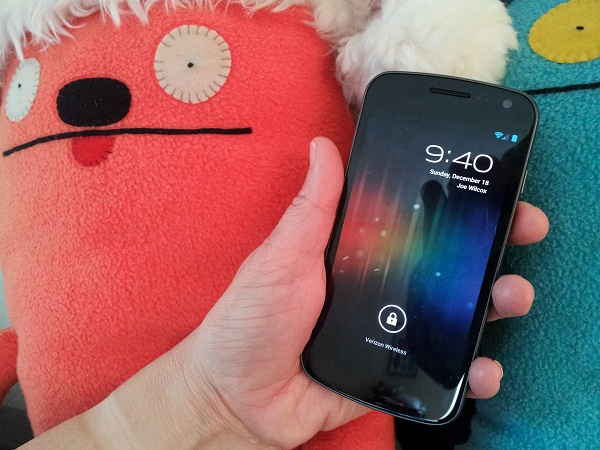
Verizon Galaxy Nexus first impressions review
This is the droid you've been looking for.
There's saying "three times is a charm" and proven axiom about one of Google's biggest rivals: Microsoft gets products right the third time. Galaxy Nexus, running Android 4.0 (aka Ice Cream Sandwich), is the third Google phone, following the Nexus One (January 2010) and Nexus S (December 2010). If you're an Android user looking for something much better or iOS user/wannabe disappointed there is no iPhone 5 LTE, Galaxy Nexus is for you. Verizon released the long-anticipated US 4G LTE model on December 15. Galaxy Nexus is fast, furious and fun. If not for the 5-megapixel camera, which delivers better photos than I expected, the Android smartphone would be perfect, and it's certainly leaps and bounds above every other handset currently available in the United States.
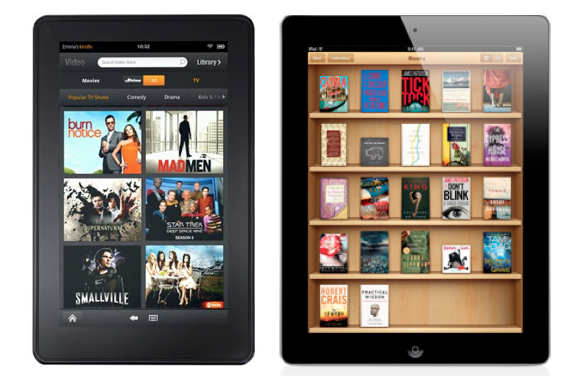
100 tablets to choose from, and you can name just one -- iPad
The year 2011 will go down in the history books as a great year for tablets mostly for Apple’s iPad, however -- not all tablet vendors fared as well as Apple. It'’s not for lack of products that prevented Android tablets from taking any market share away from Apple this year. By our calculation, over 100 tablets were introduced since the iPad.
However, we defy even the most tech-savvy of you to name more than a few of them. What was so wrong with the competition that it failed to make any inroads in the tablet market, at least until the Amazon Kindle Fire and Barnes & Noble Nook came along? I'll explain why we think Apple and Amazon will continue to dominate the market well into 2012.

What is Microsoft's problem with Android apps?
Suddenly, Microsoft is a major developer for iOS. The software giant better known for Windows dropped three iOS apps or updates in just two days, and there are rumors of more coming (e.g. Office). But what about Android? "What about Android?" you ask, surprised. "Why should Microsoft give a hoot's fart app about Android? Google and open source are reasons enough why not Android". Yes, but Microsoft makes heaps of money from Android. Nothing from iOS.
Shouldn't Microsoft support the platform that is more personally profitable? The Redmond, Wash.-based company now has convinced most major Android developers to pay licensing fees, presumably because the open-source OS violates Microsoft patents. Perhaps threat of lawsuit is enough. It's serious money, too, $10 or more per device -- if rumors are to be believed. "Patent trolling with Microsoft" I called it in July. Microsoft makes what from iOS? Diddly.

Skype for Android adds photo and video sending
Why keep those special moments to yourself, when you can share them with the people that matter most? There's Facebook, or even Google+, but what good is that when you're Skyping Claire Beauvoir in Brussels and you're in Washington, DC? Today, Skype 2.6 posted to Android Market, and its big new feature is sending photos and videos. Share and share alike. The new capability works over cellular data networks as well as WiFi.
"We've also improved battery life and video quality with Skype 2.6 for Android on devices using Nvidia's Tegra 2 chipset, which include amongst others; the Samsung Galaxy Tab 10.1, Motorola XOOM and Acer Iconia Tablet. Now you can take full advantage of the big screen with better video quality than ever before", says Dan Chastney, Skype senior product manager.
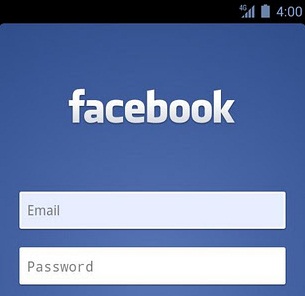
Android users love Facebook, Google+ not so much
This week, Nielsen listed the most popular Android apps by age group -- 18-24; 25-34; 35-44. Well, well, talk about age discrimination. Perhaps people 45 or older are considered to be iPhone users? For shame! The data is interesting not for what is there but what's not. Facebook tops all three age groups, when looking at actual apps. Android Market ranks higher. Google+ -- and Twitter, for the matter -- is nowhere in sight.
For all the buzz about Google+, and I am a big fan, it's not among the top-15 apps for each age group. That's no small thing. Mobile phones are by and far the most personal devices everyone uses. They're where people connect to other people and things that are important to them. Facebook clearly matters, Google+ and Twitter do not -- as measured by most-popular apps. I suppose some people could use browsers to access the services, but why would they?

Android comes to MIPS chips for first time, Ice Cream Sandwich launches on $99 tablet
The world of smartphones and mobile media tablets may be dominated by processors based on the ARM architecture, but other instruction sets are getting their due with Android.
There is development on Android on x86, spearheaded by processor makers AMD and Intel; and this week, MIPS Technologies announced the availability of the first mobile tablet running Android 4.0 on the MIPS architecture.
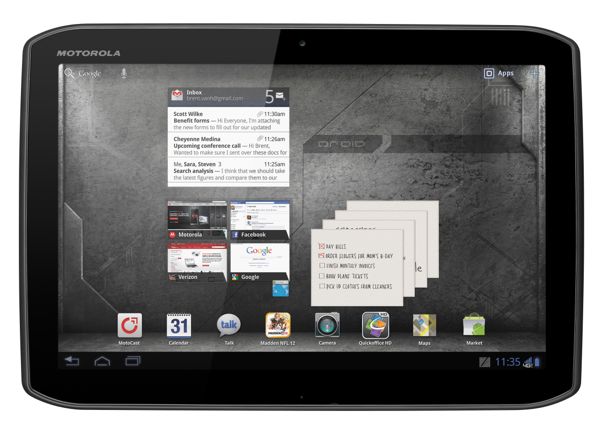
Motorola and Verizon launch two Droid Xyboard tablets, Xoom's successors
Motorola Mobility and Verizon Wireless on Tuesday introduced two new Android-powered tablets sporting the Droid brand name and 4G LTE connectivity and the promise of an Android 4.0 (Ice Cream Sandwich) upgrade: The Droid Xyboard 10.1 and 8.2. The devices are the successors to the popular Motorola Xoom tablet which first debuted in early 2011.
As the names suggest, one model of the Droid Xyboard has a 10.1" touchscreen and the other has an 8.2" touchscreen. Both models have dual-core 1.2 GHz processors, 1GB of RAM, LTE radios with 8-device hotspot functionality, 5 megapixel flash cameras and 1.3 megapixel chat cameras.
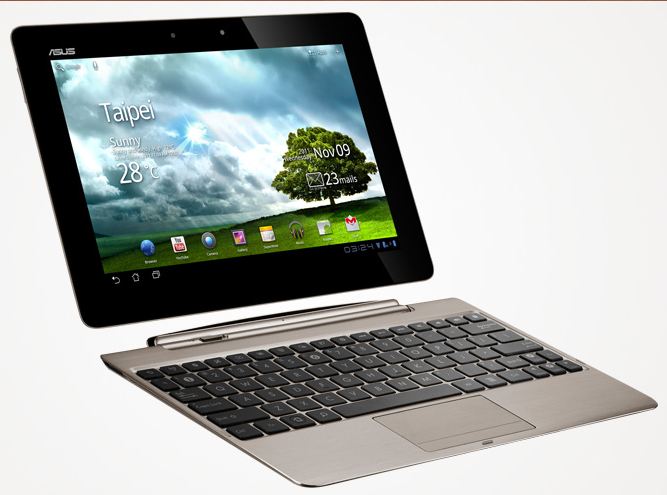
Asus Eee Pad Transformer Prime arrives in two weeks
Taiwanese PC maker Asus has announced its quad-core Eee Pad Transformer Prime Android tablet will be available for order December 12th online and December 19th in physical retail stores.
The tablet is the first device to be built on Nvidia's new Tegra 3 system on a chip, and will carry a pricetag of $499 for the version with 32GB of storage, and $599 for the 64GB version. The Eee Station keyboard dock adds $149 to the total, but comes with the benefit of an additional battery that expands the life of the Transformer Prime by approximately six hours, bringing it to a total of 18 hours of battery life.

Futuremark to bring 3D benchmarking tools to Android
PC benchmarking software company Futuremark announced on Tuesday that it has begun developing a version of its 3DMark software for Android tablets which it expects to have ready in 2012.
"In 2012 we will bring 3DMark to the Android platform with a professional grade benchmark that can be trusted by manufacturers, suppliers and vendors to provide the definitive measure of gaming performance on Android while showcasing the very best in real-time graphics and effects," said Jukka Mäkinen, CEO of Futuremark in a statement on Tuesday.
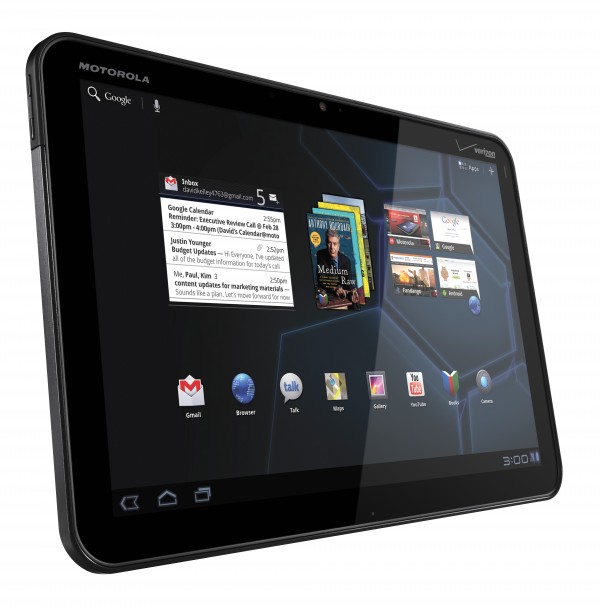
Would you pay $200 for Motorola XOOM LTE?
Verizon kicked off helluva holday sale for XOOM LTE on Black Friday -- and you can still get it today online: $199.99 with new two-year activation. But hurry, if interested. Surely pricing like this can't last. That's $529.99 less than the closest comparable iPad 2, and you won't get an LTE radio from Apple.
Is that price low enough for you to buy? In February, when XOOM pricing first leaked, I asked: "Would you pay 800 bucks for the Motorola XOOM?" Eh, no, you wouldn't. You didn't like $600, when I asked about it later on. But now the price is way less, so I'm asking again. Would you pay $200 for Motorola XOOM LTE? Please answer in comments.
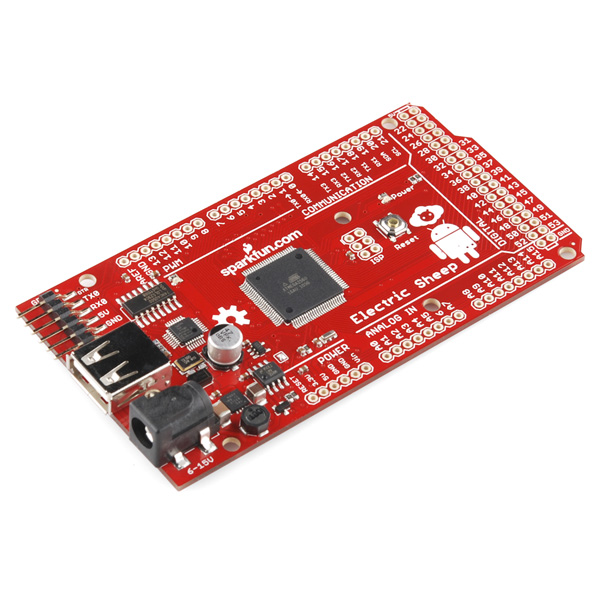
Counter holiday consumerism with a little Android 'maker-ism'
Today marks the official beginning of the holiday gift shopping season in the United States; a time when commerce shifts into high gear and product sales spike for the year.
And with each passing holiday, retailers seem to focus even more closely on consumer electronics.
